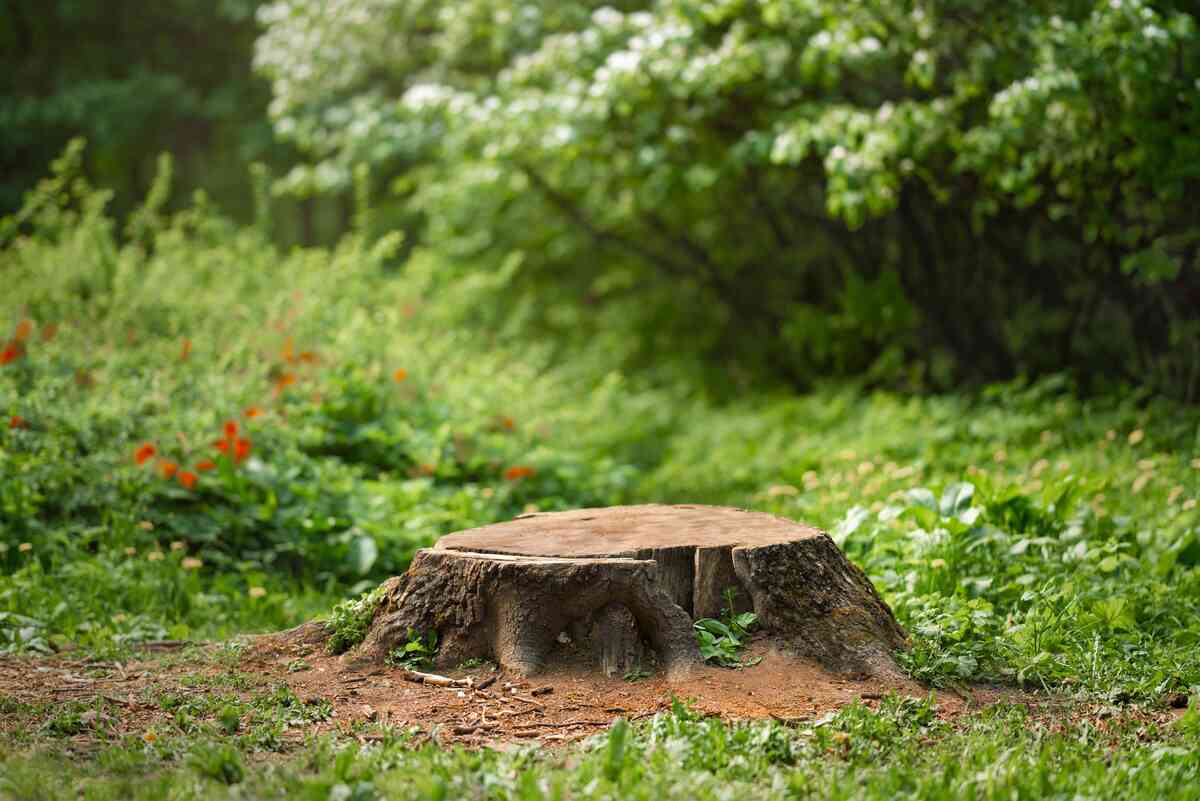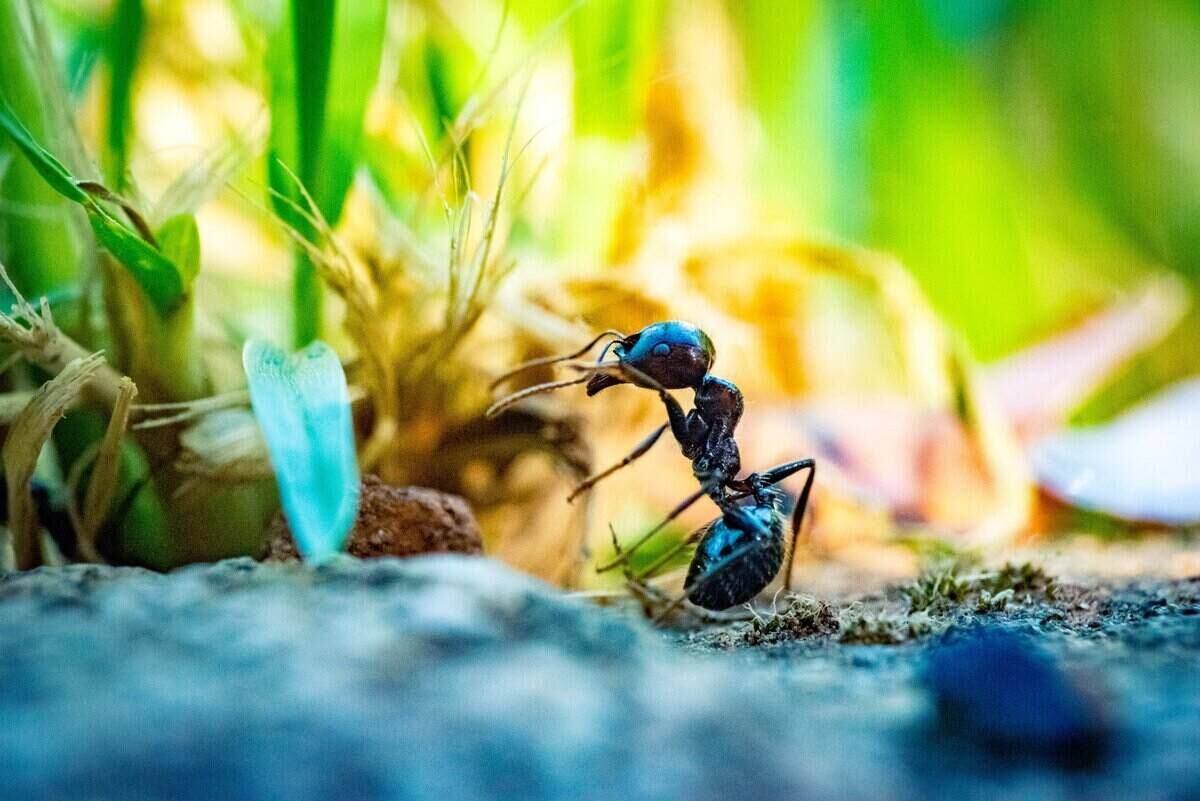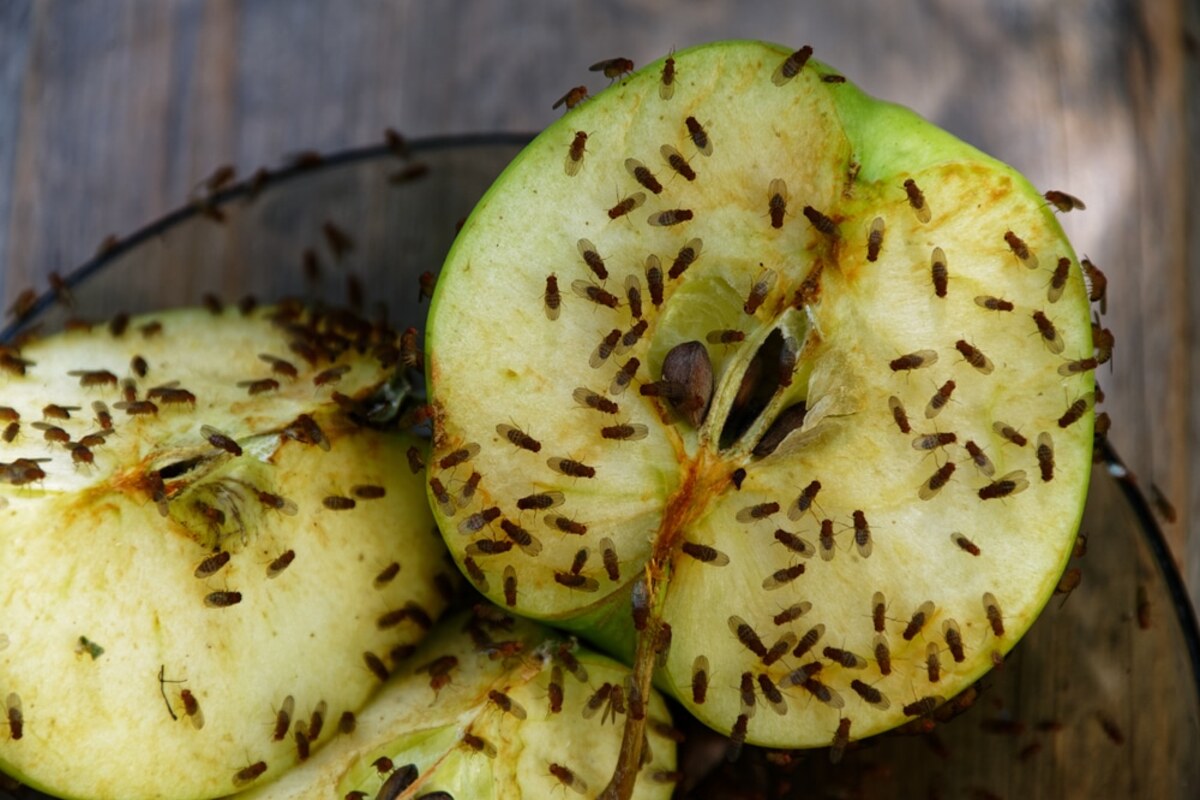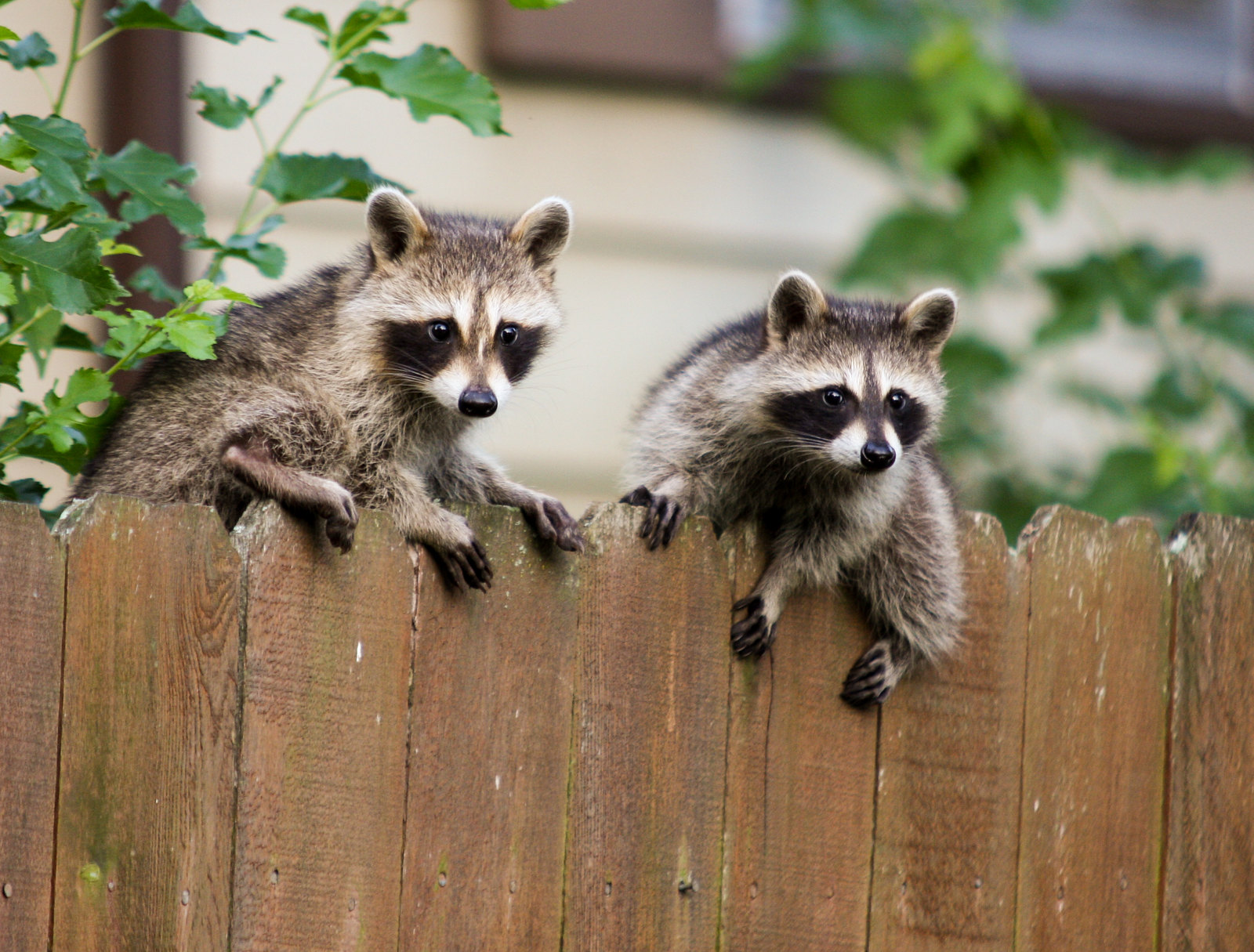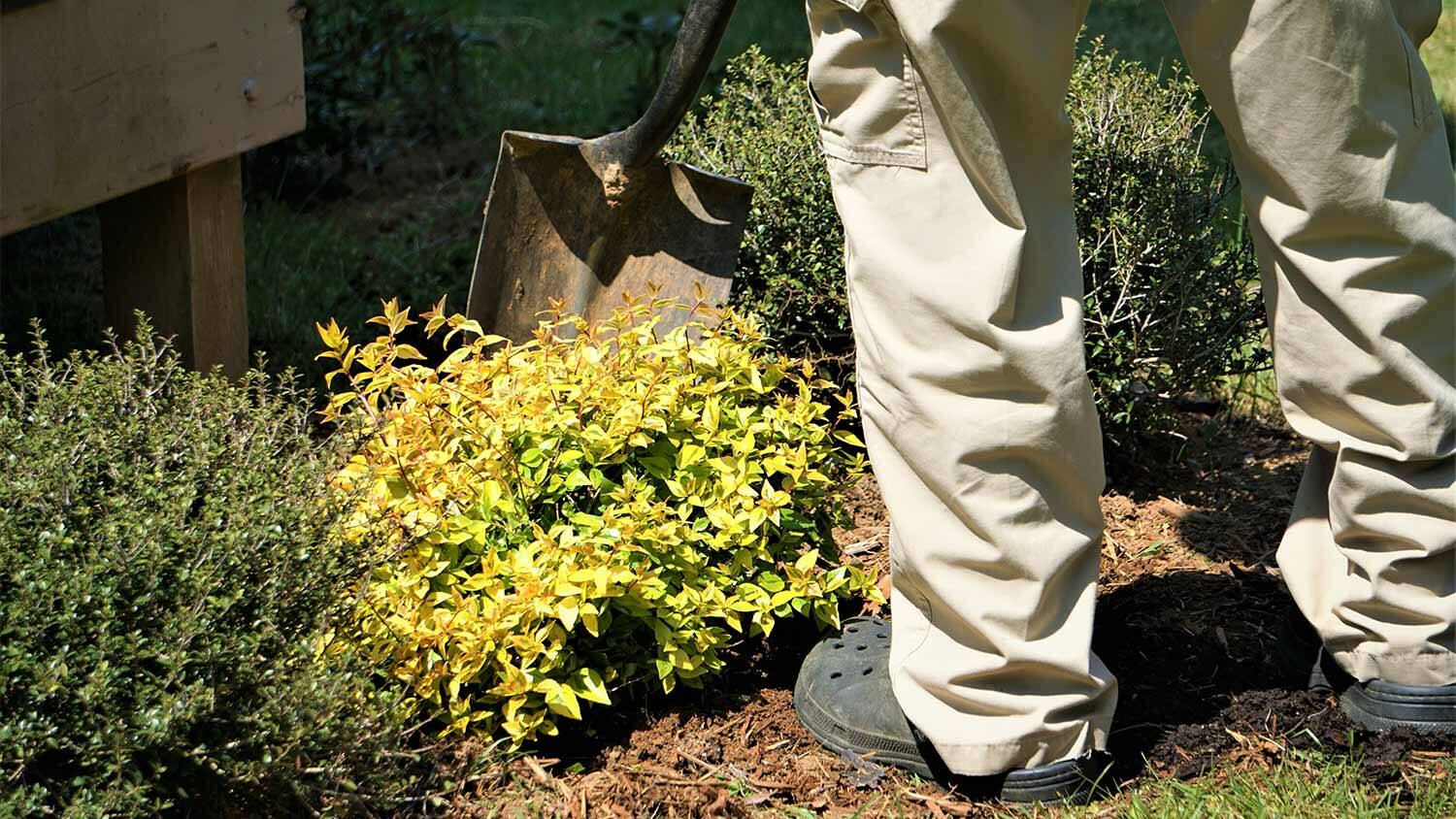Home>Types of Gardening>Ornamental Gardening>How To Get Rid Of Ants On Succulents
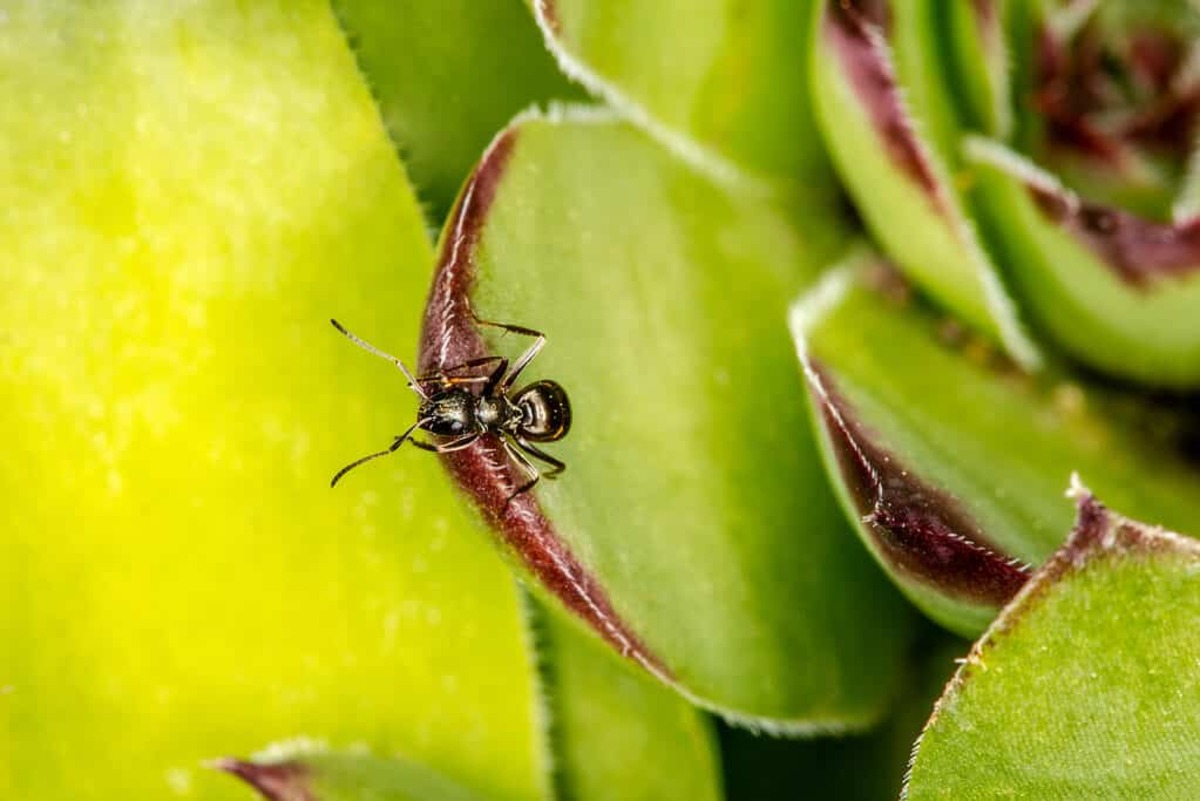

Ornamental Gardening
How To Get Rid Of Ants On Succulents
Modified: January 22, 2024
Learn effective methods to eliminate ants from your succulents in your ornamental gardening. Say goodbye to these pesky invaders and safeguard your prized plants today!
(Many of the links in this article redirect to a specific reviewed product. Your purchase of these products through affiliate links helps to generate commission for Chicagolandgardening.com, at no extra cost. Learn more)
Table of Contents
- Introduction
- Understanding the Ant Problem on Succulents
- Identifying the Types of Ants on Succulents
- Why Ants are Attracted to Succulents
- Preventive Measures to Keep Ants Away from Succulents
- Natural Methods to Get Rid of Ants on Succulents
- Chemical Options for Ant Control on Succulents
- Proper Care and Maintenance of Succulents to Avoid Ant Infestation
- Conclusion
Introduction
Welcome to the world of ornamental gardening, where beauty and finesse come together to create stunning outdoor spaces. One aspect of this hobby is the cultivation of succulents, popular for their unique appearance and low-maintenance requirements. However, as any succulent enthusiast knows, there can be challenges along the way, and one common issue is dealing with ants.
In this article, we will explore the world of ant infestation on succulents, helping you understand why ants are attracted to these plants and providing effective methods to get rid of them. Whether you are a seasoned gardener or just starting out, it is important to equip yourself with the knowledge and tools to maintain the health and beauty of your succulents.
Ants may seem harmless, but if left unchecked, they can cause damage to your precious succulents. They will not only feast on the sweet nectar excreted by these plants but may also create unsightly ant trails and even introduce pests like aphids or scale insects. To preserve the integrity of your succulents and ensure they thrive, it is essential to address any ant infestations promptly.
Throughout this article, we will explore natural and chemical methods for ant control, as well as provide tips on preventive measures to keep ants away from your succulents. Additionally, we will delve into proper care and maintenance techniques that can help deter ants and improve the overall health of your succulents.
So, are you ready to learn how to tackle the ant problem on your succulents? Let’s dive in and discover effective solutions to keep your ornamental garden thriving and ant-free!
Understanding the Ant Problem on Succulents
Before we dive into the methods of getting rid of ants on succulents, it is important to understand why ants are attracted to these plants. Ants are social insects that are constantly searching for food sources. They have a keen sense of smell and can detect sweet and sugary substances from a distance. Succulents, with their fleshy leaves and stems, produce a sugary substance called honeydew, which is a favorite food of many ant species.
Ants are also attracted to succulents for their nesting purposes. Succulents, with their nooks and crannies, provide the ideal shelter for ant colonies. The plants provide protection from predators and direct access to their favorite food source, the honeydew.
Furthermore, ants may see succulents as potential hosts for aphids or scale insects, which produce even more honeydew. Ants will defend and protect these pests from natural predators, ensuring a continuous supply of honeydew. This symbiotic relationship between ants and pests can wreak havoc on succulents if not addressed promptly.
It is essential to stay vigilant and regularly inspect your succulent plants for any signs of ant activity. Look for ant trails, especially around the stems and leaves, as well as aphids or scale insects, which may indicate an ongoing ant infestation.
Dealing with the ant problem on succulents requires a multifaceted approach that includes both preventative measures and effective ant control methods. By understanding the reasons behind their attraction to succulents, you can better strategize and implement steps to eliminate these pesky insects from your garden.
Identifying the Types of Ants on Succulents
When dealing with ants on your succulents, it is important to identify the specific ant species infesting your plants. This knowledge will help you choose the most effective control methods and understand the behavior and habits of these ants.
Here are some common ant species that you may encounter on your succulents:
- Argentine Ants: These ants are small, dark brown, and known for their massive colonies. They are attracted to sweet foods and can quickly infest multiple succulents.
- Carpenter Ants: Larger in size, these ants are typically black or dark brown and known for their ability to excavate wood to build nests. While they may not directly feed on succulents, they can cause damage by creating tunnels and compromising the plant’s structural integrity.
- Fire Ants: Fire ants are reddish-brown ants that deliver painful stings. While they are not typically attracted to succulents, they can pose a threat to humans working in the garden and should be dealt with immediately.
- Pavement Ants: These small, brown ants create nests under rocks or pavement. While they may not directly harm succulents, their presence can be unsightly and disrupt the aesthetic of your garden.
- Odorous House Ants: Named for the smell they produce when crushed, these ants are dark brown or black in color. They are attracted to sweet foods and can quickly infest succulents if not controlled.
Identifying the ant species on your succulents can help guide your control efforts. You can search for images and descriptions online or reach out to local garden experts or entomologists for assistance if you are unsure about the specific ant species you are dealing with.
Remember, each ant species may have different preferences and habits, so understanding their characteristics is crucial in effectively eradicating them from your succulents.
Why Ants are Attracted to Succulents
Ants are naturally drawn to succulents for several reasons. Understanding these factors can help you implement effective strategies to prevent and manage ant infestations on your beloved plants.
One of the main reasons ants are attracted to succulents is the sweet nectar or honeydew that these plants produce. Succulents have specialized structures, such as trichomes, that excrete sugary substances to attract pollinators. However, ants are opportunistic feeders and will exploit this source of food, often creating trails to efficiently access the sweet treat.
In addition to the honeydew, ants are also attracted to succulents because they provide a suitable habitat for nesting. Succulents have natural crevices, cracks, and spaces between leaves and stems that provide shelter and protection for ants and their colonies.
Furthermore, ants may be enticed by the presence of other insects on succulents. Aphids, for example, are common pests that feed on succulent sap. These sap-sucking insects excrete honeydew, which is a valuable food source for ants. Ants will actively protect aphids and “farm” them to ensure a constant supply of honeydew. This mutualistic relationship can lead to heavy ant infestations on succulents.
Weather conditions can also play a role in attracting ants to succulents. During dry spells or periods of drought, succulents may provide a reliable source of moisture for ants. The water-storing abilities of these plants make them appealing to ants seeking hydration.
Understanding why ants are attracted to succulents is the first step in effectively managing ant infestations. By addressing these factors and implementing preventive measures, you can minimize the likelihood of ants damaging your succulents and compromising their overall health.
Preventive Measures to Keep Ants Away from Succulents
Preventing ant infestations on your succulents requires a proactive approach. By taking preventive measures, you can create an environment that is less attractive to ants and minimize the chances of an infestation. Here are some effective preventive measures to keep ants away from your succulents:
- Maintain cleanliness: Keep your garden clean and free from food debris, fallen leaves, or overripe fruits. These can attract ants and provide a food source near your succulents.
- Trim vegetation: Prune any nearby plants or trees that may provide a bridge for ants to access your succulents. Keeping a clear space around your garden can help deter ants from reaching your plants.
- Seal entry points: Inspect your garden for any cracks, crevices, or openings that ants could use to enter. Seal these entry points with caulk or other suitable materials to prevent ant infiltration.
- Remove aphids and other pests: Regularly inspect your succulents for aphids or scale insects, as they attract ants. Use natural methods or insecticidal soaps to remove these pests and reduce ant activity in your garden.
- Grow ant-repellent plants: Planting ant-repellent herbs like mint or catnip around your succulents can help deter ants. Their strong scent and oils can mask the attractive smell of succulents and discourage ants from approaching.
- Use ant baits: Placing ant baits near your succulents can help lure and eliminate ants. These baits contain a slow-acting toxin that ants carry back to their colonies, effectively eradicating them.
- Apply ant repellents: Spray natural ant repellents, such as a mixture of vinegar and water or essential oils like peppermint or citrus, around your succulents to create a barrier that ants find unpleasant.
By implementing these preventive measures, you can create an inhospitable environment for ants and significantly reduce the risk of ant infestations on your succulents. Remember to consistently monitor your plants and promptly address any signs of ant activity to ensure the health and vitality of your ornamental garden.
Natural Methods to Get Rid of Ants on Succulents
If you prefer to use natural methods to eliminate ants on your succulents, there are several effective options available. These methods are environmentally friendly and safe for both your plants and the surrounding ecosystem. Here are some natural methods to consider:
- Diatomaceous Earth: Sprinkle food-grade diatomaceous earth around the base of your succulents. This powdery substance damages the ant’s exoskeleton, eventually leading to their demise. Make sure to reapply after rainfall or watering.
- Citrus Peels: Place citrus peels, such as those from oranges or lemons, near the affected succulents. The strong smell of citrus repels ants and discourages them from venturing close to your plants.
- Coffee Grounds: Scatter used coffee grounds around the succulents or create a barrier. Ants dislike the acidic nature of coffee and will avoid crossing the coffee line.
- Vinegar Solution: Mix equal parts vinegar and water and spray it on the ant trails and affected areas. The strong scent of vinegar disrupts the ants’ pheromone trails, making it difficult for them to navigate and find their way back to your succulents.
- Pepper: Sprinkle cayenne pepper or black pepper around the base of your succulents to create a deterrent for ants. The strong scent and spice of pepper are effective in keeping ants at bay.
- Essential Oils: Apply essential oils like peppermint, tea tree, or citrus oil directly onto the affected areas of your succulents. The strong aroma repels ants and can help eliminate their presence.
When using natural methods, it is important to note that they may need repeated applications and may not provide immediate results. Additionally, these methods may temporarily affect the aesthetics of your succulents, so exercise caution when applying them.
Keep in mind that natural methods may be more effective for smaller ant infestations. If you are dealing with a severe infestation or have not seen improvement after trying natural methods, it may be necessary to consider chemical options for ant control on your succulents.
By utilizing these natural methods, you can effectively eliminate ants from your succulents while maintaining a safe and eco-friendly garden environment.
Chemical Options for Ant Control on Succulents
If natural methods have not provided the desired results or if you are dealing with a severe ant infestation on your succulents, you may need to consider chemical options for ant control. These products are formulated specifically to target ants and can effectively eliminate the infestation. However, it is important to use them responsibly and follow the manufacturer’s instructions carefully. Here are some chemical options to consider:
- Ant Baits: Ant baits are effective in targeting ants at their source by using bait stations filled with a toxin. Ants are attracted to the bait, consume it, and carry it back to their colony, effectively eliminating the entire population.
- Ant Sprays: Ant sprays are designed to kill ants on contact. They come in aerosol or liquid forms and can provide instant relief from ant infestations. It is important to apply the spray directly on the ants and surfaces where they frequent.
- Granular Ant Killers: These products come in granular form and are spread around the base of succulents. When ants come into contact with the granules, they carry them back to the colony, resulting in widespread elimination.
- Systemic Insecticides: Systemic insecticides are absorbed by the succulent’s tissues and circulate throughout the plant. When ants feed on these plants, the insecticide affects them, resulting in their demise. It is essential to ensure that the systemic insecticide is labeled safe for use on succulents before application.
When using chemical options, it is important to prioritize the safety of yourself, your plants, and the surrounding environment. Follow all safety precautions mentioned on the product labels, including wearing protective gear like gloves and a mask, and keeping children and pets away from treated areas.
Remember that chemical options should be used as a last resort and with caution. It is always best to try natural methods and preventive measures first, as they are safer and less harmful to the environment. If choosing to use chemical options, consider targeting specific areas rather than applying them indiscriminately.
Ultimately, the choice of using chemical options for ant control on your succulents is a personal one. Assess the severity of the infestation, weigh the potential risks, and make an informed decision based on the needs of your garden.
Proper Care and Maintenance of Succulents to Avoid Ant Infestation
One of the most effective ways to prevent ant infestations on your succulents is by providing proper care and maintenance. By following these guidelines, you can create an environment that is less attractive to ants and promote the overall health of your plants:
- Well-draining soil: Succulents thrive in well-draining soil that allows excess moisture to escape. Use a specialized succulent or cactus mix to ensure adequate drainage and prevent water accumulation, which can attract ants.
- Proper watering: Succulents have low water requirements, and overwatering can create conditions that attract ants. Water your succulents sparingly, allowing the soil to dry out between waterings. Avoid waterlogging the soil or allowing water to sit in saucers.
- Regular cleaning: Remove fallen leaves, debris, and dead plant parts from around your succulents. This reduces hiding spots for ants and pests and eliminates potential food sources.
- Avoid over-fertilization: Excessive fertilization can lead to an excess of sap and honeydew production in succulents. This can attract ants and other pests. Use a balanced succulent fertilizer sparingly and according to the instructions provided.
- Isolation: If you notice an ant-infested succulent, isolate it from other plants until the infestation is under control. This prevents ants from spreading to healthy plants and allows you to concentrate your efforts on treating the affected plant.
- Regular inspections: Monitor your succulents regularly for signs of ant activity, such as ant trails or aphids. Early detection allows for prompt intervention and prevents the infestation from spreading.
- Pruning and grooming: Trim and groom your succulents regularly to remove any dead or damaged parts. These can attract ants and provide entry points for pests.
By implementing proper care and maintenance practices, you can create a less attractive environment for ants and minimize the risk of infestation. Healthy succulents are naturally more resilient against pests and diseases, including ants.
Remember, prevention is key in managing ant infestations on your succulents. By adopting the right care practices and staying proactive, you can enjoy your beautiful and thriving succulent garden without the nuisance of ant presence.
Conclusion
Succulents bring beauty and elegance to any garden or indoor space, but dealing with ant infestations can quickly dampen the enjoyment of these unique plants. By understanding the reasons behind ants being attracted to succulents and implementing effective control methods, you can maintain the health and vitality of your succulent garden.
Throughout this article, we have explored various aspects of ant infestations on succulents. We discussed the importance of identifying the types of ants and understanding why they are attracted to these plants. We also delved into preventive measures, both natural and chemical, to keep ants away from succulents.
Prevention is always the first line of defense, and by maintaining cleanliness, sealing entry points, and taking proper care of your succulents, you can create an environment less appealing to ants. Implementing natural methods like diatomaceous earth, citrus peels, or coffee grounds can also help deter ants and control infestations.
However, when natural methods prove ineffective or for severe infestations, chemical options like ant baits, sprays, or granular ant killers can provide efficient control. Remember to follow product instructions carefully and prioritize safety.
Caring for your succulents and maintaining their health through proper watering, soil, and grooming practices is crucial in avoiding ant infestations. Regular inspections for ant activity and prompt action can help prevent ant colonies from establishing and spreading.
By combining these strategies and staying vigilant, you can enjoy the beauty of your succulent garden without the persistent presence of ants. Effort put into prevention and control measures ensures that your succulents thrive, free from the damaging effects of ant infestations.
So, armed with knowledge and a range of techniques, you can now confidently tackle the challenge of ants on your beloved succulents. With a little care and attention, your ornamental garden will continue to flourish, providing joy and tranquility for years to come.
